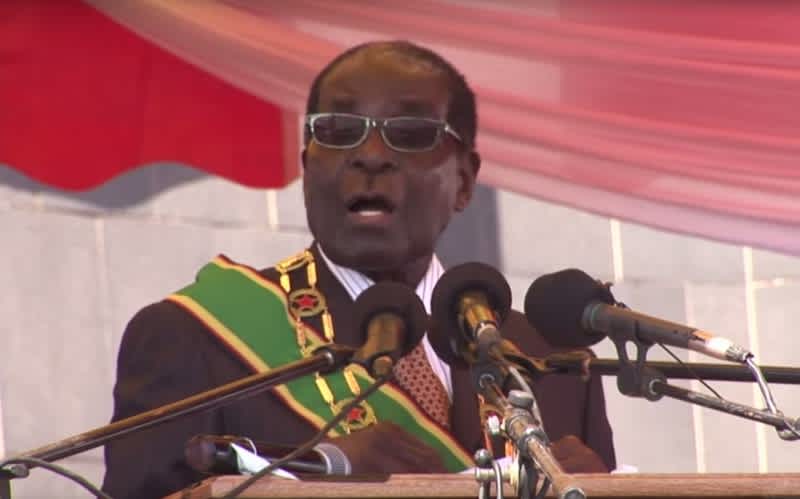Zimbabwe Lifts Big Game Hunting Ban, President Calls Hunters “Vandals”
OutdoorHub Reporters 08.12.15

The Zimbabwean government has lifted a ban on big game hunting after just nine days. On August 2, more than a month after a popular male lion named Cecil was killed near Hwange National Park, the Zimbabwe Parks & Wildlife Management Authority issued a moratorium on the hunting of all lions, leopards, and elephants outside of the park—effectively shutting down all hunting for those species in the country. Bow hunting was also restricted.
Little more than a week after the moratorium was issued however, wildlife officials decided to lift the hunting ban—but not without severe restrictions.
Currently all bow hunting and the harvest of lions, elephants, and leopards must receive direct approval from the Parks and Wildlife Management Authority. Hunters going into the field for lions, elephants, and leopards must now be accompanied by park staff and pay for any expenses undertaken during the hunt. Several areas, including the farm where Cecil was killed, will still be off-limits.
“All players in the hunting industry are being reminded to familiarize themselves with the relevant statutes governing the wildlife industry,” officials urged strongly. “Further, the Authority would like to appeal to all members of the public that they should report any suspected illegal wildlife activities to the nearest offices of Zimbabwe Parks and Wildlife Management Authority, Zimbabwe Republic Police and other Government law enforcement agencies.”
The wildlife agency confirmed that the changes were directly related to the international controversy surrounding the death of Cecil. The lion was killed on July 1 by an American tourist, Walter Palmer, in what was quickly denounced by the Zimbabwe government as an act of poaching. Palmer, a dentist in Minnesota, was subsequently the target of numerous death threats, protests outside his office, and calls for extradition to Zimbabwe. Shortly before he went into hiding, Palmer asserted that he did not know of any wrongdoing during his trip and relied on his guide, Theo Bronkhorst, to obtain the proper licenses, which they did not have. The US Fish and Wildlife Service is currently in contact with Palmer and has not yet charged him with any crimes.
You can read more about Cecil the lion here.
Regardless of the ultimate outcome of Palmer’s case, animal rights advocates have taken the opportunity to criticize big game hunting not only in Zimbabwe, but also the rest of Africa. Organizations like PETA even called for the execution of Palmer, despite Zimbabwe’s maximum punishment of 10 years in prison and a $20,000 fine for lion poaching. Hunters and hunting organizations argued that it is unfair to group legal hunting together with poaching, which is widely regarded as unethical—and, of course, illegal. Big game hunters contribute millions of dollars towards conservation in African countries, supporting both local communities and protection for endangered species.
Zimbabwean President Robert Mugabe recently discussed Cecil for the first time, calling foreign hunters “vandals.” Mugabe, a controversial figure who has served as president of Zimbabwe since 1987, also blamed citizens for their failure to protect Cecil from foreign hunters.
“All the natural resources are yours. Even Cecil the lion is yours. He is dead but yours to protect, and you failed to protect him,” Mugabe said in an address, which you can watch below. “There are vandals who come from all over. Some may be just ordinary visitors, but there are others who want to vandalise, to irregularly and illegally acquire part of those resources.”
You can see a portion of Mugabe’s speech here.
Mugabe added that he believed hunting is a sin.

